
50% Off – Sale Ends Tomorrow
50% Off – Sale Ends Tonight
Now 50% Off for a Limited Time
The Part Your Client Wants to Hide Could Be the Key to Unlocking Their Growth
How to work with the shadow side

 Everyone has parts of themselves that they’re embarrassed, ashamed, or even horrified of . . .
Everyone has parts of themselves that they’re embarrassed, ashamed, or even horrified of . . .
. . . and many clients go to great lengths to keep these parts hidden.
We call this the shadow side.
Problem is, no matter how deeply a client might bury these parts, they’ll continue to surface – often in ways that can harm their relationships, interfere with their work, and sap their self-worth.
So how can we help clients explore the parts of their shadow that they’re afraid for you to know about (or perhaps won’t acknowledge, even to themselves)?
We brought together 20 of the world’s top experts to share their best strategies for helping clients uncover – and maybe even come to accept – their shadow parts. Presenting . . .
— New Short Course —
How to Help Your Client Integrate and Heal Their Shadow Parts

How to Work with a Shadow Side That’s Rooted in Trauma
Bessel van der Kolk, MD Janina Fisher, PhD Frank Anderson, MD
Jennifer Sweeton, PsyD Ron Siegel, PsyD Christine Padesky, PhD
Usha Tummala-Narra, PhD Chris Willard, PsyD
- One Unique Challenge of Working with a Shadow Shaped by Trauma (and How to Approach It)
- An Internal Family Systems Approach to Working with Shadow Parts
- Three Clinical Presentations of a Trauma-Based Shadow Side
- Strategies to Establish Trust Before Beginning Work with a Client’s Shadow Side
- Why a Shadow Side That’s Based in Trauma Often Reacts Differently (and How That Can Impact Your Approach)

The Critical Link Between Shame and a Client’s Shadow Side (and How to Work with It)
Stephen Porges, PhD Thema Bryant, PhD Chris Irons, PhD
Ron Siegel, PsyD Christine Padesky, PhD Usha Tummala-Narra, PhD
Chris Willard, PsyD
- Strategies to Help Clients Begin to De-Shame Their Shadow
- How to Address the Physiological Distress of Shame, Blame, and the Shadow Side
- How to Work with Shame That Surrounds the Natural Desire to Feel Loved
- How to Ease Shame by Helping Clients See the Wisdom in Their Shadow Parts
- Techniques to Help Clients Sit with the Discomfort of Their Shadow (Rather Than Avoid It)

How to Work with an Anger-Driven Shadow Side
Pat Ogden, PhD Dennis Tirch, PhD
Deany Laliotis, LICSW Ron Siegel, PsyD Christine Padesky, PhD
- How to Approach a Shadow Side That’s Rooted in Anger and Racism
- Strategies to Help Clients Develop Compassion for an Angry Shadow Side
- How to Work with a Shadow Side That’s Cloaked in Victimhood
- How to Help Clients See the Chance for Redemption Within Their Shadow Side
- How to Help Clients Let Go of a Shadow-Fueled Identity That No Longer Serves Them

How to Skillfully Use Vulnerability to Help Heal the Shadow Side
Kelly Wilson, PhD Zindel Segal, PhD Jennifer Sweeton, PsyD
Ron Siegel, PsyD Christine Padesky, PhD Usha Tummala-Narra, PhD
Chris Willard, PsyD
- How to Use Your Own Vulnerability to Help Clients Explore Theirs
- How to Help Clients Overcome Their Hesitations About Being Vulnerable
- How to Work with a Client’s Drive for Success When It Impacts Their Shadow Side
- One Simple Technique to Calm the Amygdala and Begin to Bring in Vulnerability
- Why Our Traditional Training Around Disclosure and Neutrality Can Fall Short When Working with Shadow Parts (and What to Do Instead)

Strategies to Help Clients Embrace the Idea of Exploring Their Shadow Side
Terry Real, MSW, LICSW Shelly Harrell, PhD Deany Laliotis, LICSW
Ron Siegel, PsyD Christine Padesky, PhD Usha Tummala-Narra, PhD
Chris Willard, PsyD
- Three Considerations to Keep in Mind When Approaching a Client’s Shadow Side
- An Expert Strategy to Help Clients Develop a Relationship with Their Shadow Parts
- Acceptance vs. Blame: How to Help Clients Strike a Critical Balance with Their Shadow Side
- Psychoeducation About the Neurobiology of Shadow Parts
- Specific Language to Help Normalize the Shadow Side

How to Work with the Impact of a Client’s Shadow Side on Their Relationships
Ellyn Bader, PhD Stan Tatkin, PsyD, MFT Usha Tummala-Narra, PhD
Ron Siegel, PsyD Christine Padesky, PhD Chris Willard, PsyD
- A Playful Strategy to Help Couples Better Understand Each Other’s Shadow Parts
- How to Work with a Shadow Side that Forces Your Client to Lead a Double Life
- Two Techniques to Uncover Shadow Parts in a Relationship
- How to Work with a Client Who Projects Their Shadow on Their Partner
- Techniques to Help Couples Foster Healing in Their Relationships
Register Here for $197 $97
and get all the videos, audios, transcripts, learning tools, plus 3 bonuses
to help you work with the shadow parts of your clients
Sign Me Up
Up to 7.25 CE/CME Credits or Clock Hours are available for purchase at checkout.
Click HERE to get information about CE/CME credits and clock hours as well as speaker disclosures
You Are Protected By
NICABM’s Money-Back Guarantee
We invite you to register for this training program without any risk. Unless you are completely satisfied, we will refund your money. Just let us know within 30 days from the date of registration. We are that confident that you will find this information to be more than you expected.
For This Short Course, We Brought Together Some of the Top Experts in the Field

Bessel van der Kolk, MD
Neuroscientist and Professor of Psychiatry at Boston University Medical School. Author of The Body Keeps the Score: Brain, Mind, and Body in the Healing of Trauma.

Janina Fisher, PhD
Licensed clinical psychologist and former instructor, Harvard Medical School; Advisory Board member of the Trauma Research Foundation

Stephen Porges, PhD
Developer of Polyvagal Theory; Distinguished University Scientist at the Kinsey Institute at Indiana University Bloomington and Research Professor in the Department of Psychiatry at University of North Carolina Chapel Hill.

Terry Real, MSW, LICSW
Founder of the Relational Life Institute; Author of I Don’t Want to Talk About It: Overcoming the Secret Legacy of Male Depression and The New Rules of Marriage: What You Need to Make Love Work.

Pat Ogden, PhD
Pioneer in Somatic Psychology; Founder and Director of Sensorimotor Psychotherapy Institute (SPI); Co-founder of the Hakomi Institute; Author of Sensorimotor Psychotherapy: Interventions for Trauma and Attachment.

Thema Bryant, PhD
Licensed psychologist specializing in relief and empowerment of marginalized persons; Professor of Psychology in the Graduate School of Education at Pepperdine University; author of Thriving in the Wake of Trauma: A Multicultural Guide.

Frank Anderson, MD
Licensed psychiatrist and psychotherapist; program consultant for the IFS Institute; advisor to the International Association of Trauma Professionals; author of Transcending Trauma: Healing Complex PTSD with Internal Family Systems.

Usha Tummala-Narra, PhD
Professor of Counseling, Developmental, and Educational Psychology at Boston College; Author of Psychoanalytic Theory and Cultural Competence in Psychotherapy; Co-author of Applying Multiculturalism: An Ecological Approach to the Multicultural Guidelines.

Ellyn Bader, PhD
Co-creator of The Developmental Model of Couples Therapy; Co-director of The Couples Institute.

Shelly Harrell, PhD
Licensed psychologist specializing in multicultural and community psychology; Professor of Psychology in the Graduate School of Education at Pepperdine University.
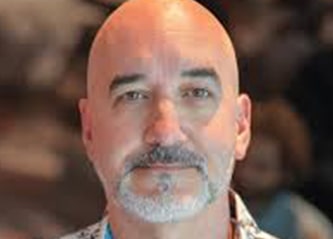
Dennis Tirch, PhD
Founding Director of The Center for Compassion Focused Therapy; President of The Compassionate Mind Foundation of North America; co-author of Experiencing ACT from the Inside Out: A Self-Practice/Self-Reflection Workbook for Therapists.
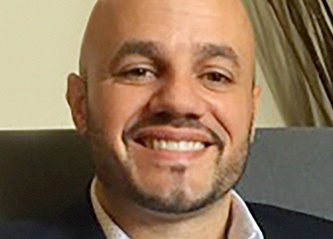
Chris Irons, PhD
Clinical psychologist; Co-Director of Balanced Minds; author of The Compassionate Mind Approach to Difficult Emotions: Using Compassion Focused Therapy;Creator of The Self-Compassion App and Co-Author of the Compassionate Mind Workbook.
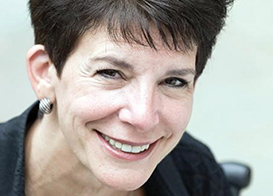
Deany Laliotis, LICSW
Director of Training at EMDR Institute; Specialist in treatment of traumatic stress disorders and attachment issues; author of chapters and articles on EMDR therapy.

Kelly Wilson, PhD
Co-author of Acceptance and Commitment Therapy: An Experiential Approach to Behavior Change; Founder of OneLife Education Training, LLC.
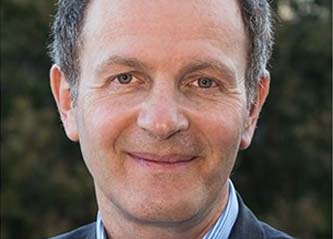
Zindel Segal, PhD
A founder of Mindfulness-Based Cognitive Therapy (MBCT); Professor of Psychology at the University of Toronto.

Stan Tatkin, PsyD, MFT
Founder of the PACT Training Institute and developer of a Psychobiological Approach to Couple Therapy (PACT).

Jennifer Sweeton, PhD
Clinical and forensic psychologist; owner of Kansas City Mental Health Associates; adjunct professor at University of Kansas School of Medicine; author of Trauma Treatment Toolbox.

Ron Siegel, PsyD
Assistant Professor of Psychology, part time, Harvard Medical School; Author of The Mindfulness Solution: Everyday Practices for Everyday Problems and Sitting Together: Essential Skills for Mindfulness-Based Psychotherapy.

Christine Padesky, PhD
Co-founder of the Center for Cognitive Therapy in Huntington Beach, California; Co-creator of Strengths-Based CBT; Co-author of Mind Over Mood and Collaborative Case Conceptualization.

Christopher Willard, PsyD
Psychologist and educational consultant specializing in mindfulness; president of the Mindfulness in Education Network; serves on the board of directors at the Institute for Meditation and Psychotherapy.
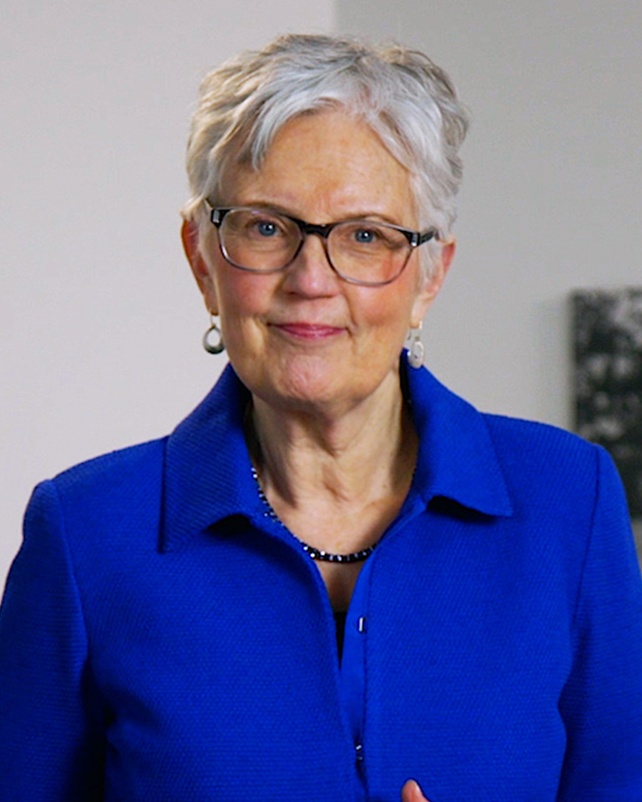
Course Director
Ruth Buczynski, PhD
Here's What You'll Get:
Everything is yours to keep forever in your professional library
|
|
Downloadable videos so you can watch at your convenience, on any device |
|
|
Audio recordings you can download and listen to at home, in the car, at the gym or wherever you like |
|
|
TalkBack Segments to distill key ideas (this is where we “land” the session) |
|
|
Next Week in Your Practice sessions to give you concrete strategies to use with clients |
|
|
Professionally-formatted transcripts of the sessions, to make review and action simple |
|
|
Three downloadable bonus videos to help clients integrate and heal their shadow parts |
You’ll Also Get These 3 Bonus Sessions with Even More Strategies

Bonus 1: How to Work with Shadow Parts That Stem from Childhood Trauma
Lynn Lyons, LICSW
- How to Work with a Trauma-Based Shadow That Constantly Feels Weak and Afraid
- How to Uncover a Shadow Side That Lies Beneath a Client’s Anxiety

Bonus 2: How to Decrease Shame and Help Clients Develop Compassion for Their Shadow
Russell Kolts, PhD
- How to Work with Clients Who Focus Soley on Their Shadow and Help Them See Their Virtuous Parts
- One Specific Question That Can Help Clients Cultivate Compassion for Their Shadow
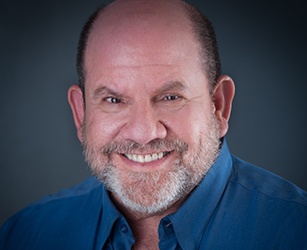
Bonus 3: Developing Tolerance for the Shadow in a Relationship
Stan Tatkin, PsyD, MFT
- How to Work with the Shadow Side in Couples When There’s a History of Trauma
- A 2-Step Process to Help Couples Develop Limits, Tolerance, and Trust
Register Here for $197 $97
and get all the videos, audios, transcripts, learning tools, plus 3 bonuses
to help you work with the shadow parts of your clients
Sign Me Up
Up to 7.25 CE/CME Credits or Clock Hours are available for purchase at checkout.
Click HERE to get information about CE/CME credits and clock hours as well as speaker disclosures
You Are Protected By
NICABM’s Money-Back Guarantee
We invite you to register for this training program without any risk. Unless you are completely satisfied, we will refund your money. Just let us know within 30 days from the date of registration. We are that confident that you will find this information to be more than you expected.
Starting Today, This Program Can Change the Way You Practice

. . . I feel so fortunate to have this access to brain power, experience and research synthesis . . .
“When I listen to the experts talk openly about their experience, I feel so fortunate to have this access to brain power, experience and research synthesis on cutting edge issues! I go back to the videos to reinforce things that will assist my clients.”
Mary Logan, Counselor
Ipswich, MA

I benefit, my practice benefits, and most important my clients benefit . . .
“I live in Nova Scotia and have limited travel funds at the university at which I work. The series provided by NICABM gives me the rare opportunity to listen to the leaders in the field. As a result, I learn valuable information that would not otherwise be available to me. I benefit, my practice benefits, and most important my clients benefit from the knowledge and wisdom I gain from the series.”
David Mensink, PhD Counseling Psychology, Psychologist
Halifax, Nova Scotia, Canada

. . . some dare to go the extra journey to research and educate
“These NICABM series keep me afloat, in touch, on track, well trained in my field, and more personally healthy. The best aspect, though, is that I feel validated and comforted knowing that some dare to go the extra journey to research and educate, so I can walk the path to health, and can share with others.”
Mary Corsello-Vilcheck, LCSW
Midlothian, VA
Why the Transcript Is Essential:
- The transcript makes it easy to go back and double check concepts, citations and names that are mentioned
- We put in a table of contents to make it easy for you to find the exact part of the webinar you need
- Having the concepts already written allows you to take notes on how you’re going to use the ideas rather than transcribing the ideas
- Some people simply learn better by reading than by listening or watching
- You will be able to print out and share techniques presented in the session with your patients

“I really liked being able to follow along with the transcripts as I listened…it was nice not to feel like I had to take notes. I really feel like I remember more when I both hear and see at the same time.”
Mary Ellen McNaughton, Masters in Counseling, Psychology Counselor
Kelowna, British Colombia, Canada
You Are Protected By
NICABM’s Money-Back Guarantee
We invite you to register for this training program without any risk. Unless you are completely satisfied, we will refund your money. Just let us know within 30 days from the date of registration. We are that confident that you will find this information to be more than you expected.
Register Here for $197 $97
and get all the videos, audios, transcripts, learning tools, plus 3 bonuses
to help you work with the shadow parts of your clients
Sign Me Up
Up to 7.25 CE/CME Credits or Clock Hours are available for purchase at checkout.
Click HERE to get information about CE/CME credits and clock hours as well as speaker disclosures
